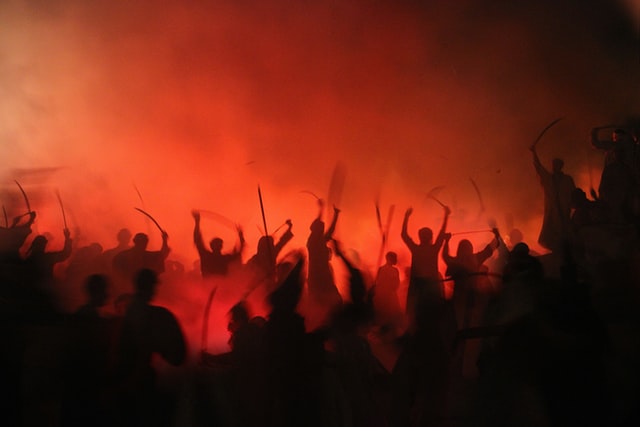Whether we like it or not, aggression is quite prevalent within our society, whether it’s a squabble between two elementary school children, or Rome conquering Europe. People seem to be aggressive over many things, for a variety of reasons. Despite its prevalency, aggression is mostly looked down upon socially. Aggression is often viewed as over-the-top and is for the most part, illegal. So, if aggression is so negative in many cases, why is it so common, and what can affect whether people will more aggressive in some scenarios and others not?
Alcohol
Alcohol is commonly cited as something that can lead to rash decisions and unrestrained behavior. This, of course, includes aggression. People becoming more aggressive due to alcohol causes is referred to as alcohol myopia. Alcohol myopia is the theory of how alcohol hampers perceptual and cognition. It is thought to increase people’s sensitivity to cues, increases reactivity, reduces regulation, and reduces their thoughts on consequences. People who drink a lot of wine tend to forget about the consequences which may come into effect after any certain action. This influences violence, because people may end up impulsively swinging a punch without thinking about what happens afterward.
There is research supporting these claims. There are many correlations linking alcohol heavily to violent and aggressive tendencies. While some correlations only show violent behaviour, this is definitely an indicator of more aggressive behavior. For example, 5.9% of all deaths are attributed to the harmful use of alcohol. And in Australia, 47% of homicides were associated with alcohol use. These cases suggest that something about alcohol made people more likely to act aggressively towards others, even to the extent as to kill them.
Media
Another possible factor that may influence aggression is the media all people are exposed to, especially children. This theory suggests that people act more violently due to consuming more violent media. Kids have been shown to like varying levels of violence within video games and movies (First-person-shooter games, or action movies). But does this actually lead to them being more violent? The effects might be there in more subtle ways. It makes inherent sense that watching violence leads to more violence. May correlations have been found between violent media and aggression. The correlations have been shown to be small, but still significant. However, there is an issue in determining whether there is truly any causation. Maybe more aggressive people simply watch violent media more?
To try to answer this question, Josephson conducted a study where she tested whether watching a violent tv show would change how kids played with one another. Half the kids were shown a violent program. The other half were shown a non-violent show. The kids then played a game of hockey. Hockey was chosen as a game because there is a lot of potential for violence in the game. There was also a third condition, in which some of the kids who had watched the violent video were reminded of it right before playing. The results showed a slight difference in violent behaviours between the kids in the violent video condition and the non-violent video condition, with the kids in the violent video condition showing slightly more aggressive behaviors. However, this kids who had been reminded of the violent video showcased far more aggressive behaviours than the other two conditions, showing how having the media fresh in the kids’ minds did have an impact in overall aggression.
De-individualisation
De-individualisation is the process in which a person’s individual identity is not known to anyone else. This tends to make people less afraid of any consequences for action. Because of this, people will often act in a much more unrestrained manner, potentially leading to much more violent and unrestrained behavior. An example of this type of behavior is in crowd violence – also known as mob violence. Take for example the black lives matter riots all over the world. There are people who generally believe good things, who end up acting our violently, mainly because they are de-individualized. This is because they are part of a group, and are harder to recognize. People do not feel like a single entity when in a mob or crowd, so their behaviour becomes much more unrestrained, which can often lead to large scale violence in riots
People can also feel de-individualized when on their own. This is when they are completely anonymous. Here, the same phenomenon happens, in which people do not feel there are so many consequences, so their behavior becomes much more unrestrained. One example of some research is one study conducted by Zimbardo where participants all wore the same clothes to deindividualize them, compared to the other condition, where people wore different clothes. It was found that they gave much meaner remarks and use much more vulgar language than those wearing normal clothes. Once again, people felt they were part of the group rather than a single person, so their behaviour was not regulated as much as it normally would have in the own-clothes condition
